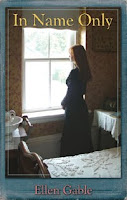Self-Promotion…or the Strangest Place I’ve Ever Sold A Book
 Since a self-published author doesn’t have a publisher to promote them, it’s important to take every opportunity to promote oneself. Keep copies of your books in your car, always have business cards or book marks in your purse or wallet and…don’t be afraid to talk about your books.
Since a self-published author doesn’t have a publisher to promote them, it’s important to take every opportunity to promote oneself. Keep copies of your books in your car, always have business cards or book marks in your purse or wallet and…don’t be afraid to talk about your books.
I’ve sold books to the insurance man, the animal control officer, at family functions and churches. I’ve sold books to people on the beach and at the grocery story.
But the strangest place I’ve ever sold a book was at a local club/bar.
Now, I never go to bars or clubs, but this particular night, my husband was performing with his jazz fusion band. During one song, he actually plays two different guitars (photo).
That night, as I watched my husband perform, I noticed a tall fellow swaying to the music and staring at my husband. When the song finished, the band took a break. The tall man ran off in the direction of the stage. I followed close behind. He spoke to my husband with the adulation of an adoring fan.
“Man, you’re the best guitarist I’ve ever seen! The way you play those two guitars…it’s just incredible! You’re better than Mick Jagger,” and he went on to list three or four other famous guitarists.
Now, my husband has enough humility for both of us, so, seeing me, he didn’t respond to the praise. Instead he replied, “This is my wife, Ellie.” My husband’s newest fan turned to me and said, “Your husband is the most incredibly talented guitarist I’ve ever seen or heard.”
“Isn’t he amazing?” was my response.
“He sure is.” We chatted for a few moments, then, out of the blue he said, “He’s so good, you should write a book about him.”
I’m sure I burst out laughing. “Well, actually, I have written a book. It’s a novel called Emily’s Hope and it’s loosely based on my life…and my husband is a major character in the book.”
“Really?”
“Yes, really.”
“Do you have any copies with you?” (As I said before, self-published authors should always be prepared.) So I responded, “Of course.”
Admittedly, this 40-year-old tipsy man probably was not the target audience for my first novel. And…my husband felt I took advantage of a fellow who was drinking, and perhaps I did. But, well…a sale is a sale.
Humor aside, I’ve often wondered about this fellow who walked into the bar to have a good time and walked out with my novel in his hands. I hope he’s doing well.
Ellen Gable Hrkach is the vice president of the Catholic Writers Guild. She is the award-winning author of In Name Only, a Catholic romance and now an Amazon Kindle bestseller (top 100 Religious Fiction). Her new book is Stealing Jenny which is a contemporary pro-life suspense novel. Her website is www.ellengable.com. She and her husband and five sons live in Pakenham, ON Canada.



